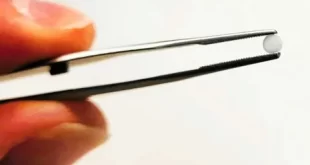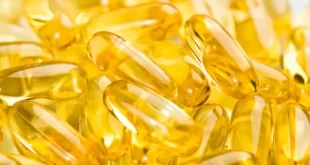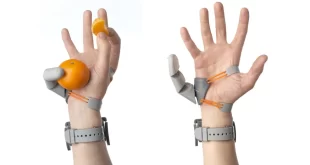Reference number PAR 2024/621
The University of Gothenburg tackles society’s challenges with diverse knowledge. 56 000 students and 6 600 employees make the university a large and inspiring place to work and study. Strong research and attractive study programmes attract researchers and students from around the world. With new knowledge and new perspectives, the University contributes to a better future.
The Department of Chemistry and Molecular Biology conducts high-quality research and education in chemical sciences and molecular life sciences. Our research and education focuses on a deep understanding of chemical and biological processes in cells and in the environment.
We address important societal issues such as antibiotic resistance, cancer, brain diseases, environmental problems and climate change. In this way, we contribute to achieving the UN’s global goals for sustainable development in the areas of good health and well-being, sustainable energy for all, sustainable cities and communities, and combating climate change.
The department is an international environment with interdisciplinary collaborations in both research and education and contributes strongly to the University of Gothenburg’s top ranking in life science.
The department is responsible for postgraduate education in the subject area Natural Sciences with a focus on chemistry, biophysics, biology and educational science. In addition, the department hosts educational programs in molecular biology, genomics and systems biology, chemistry, organic chemistry and pharmaceutical chemistry, as well as prescription education. The department collaborates with various societal actors such as schools, business and authorities. The Department of Chemistry and Molecular Biology has around 200 employees. We are located in central premises both on Campus Johanneberg and on Campus Medicinareberget in Gothenburg.
Dr. Phan’s research interest has been focused on the development and application of multimodal imaging using mass spectrometry imaging, fluorescence microscopy, and electron microscopy to cells and neurobiology, particularly the study of the structural effects of psychostimulant drugs on the brain chemistry, the molecular turnover of nerve cells and the brains in relation to neurogenesis and neurodegeneration. Her current interest is the correlation of secondary ion mass spectrometry (nanoSIMS, ToF-SIMS), super-resolution fluorescence microscopy (STED), and electron microscopy to study the structural and functional relationship between cellular lipids and proteins at subcellular and molecular levels. She is also working to develop labeling probes for specific targeted bioimaging using these combined modalities.
The subject of the PhD position is development of a multiple correlative nanoscale imaging allowing the correlation of organization and turnover of proteins and molecular lipids, localization of protein complexes and organelles, and cellular morphology at the subcellular level. The method is then applied to study the molecular and organelle turnover in neuronal stem cells during the cell differentiation. The goals are to obtain multiple properties of the same cell sample with a subcellular precision across different imaging techniques, and to understand the molecular regulation during neuronal stem cell differentiation and proliferation.
General information about being a doctoral student at the University of Gothenburg can be found on the university’s doctoral student pages.
https://medarbetarportalen.gu.se/doktorand/?languageId=100001&skipSSOCheck=true
Duties
The PhD student will take courses to fulfill the requirement of the PhD programme, and work on research projects to combine STED super-resolution microscopy, mass spectrometry imaging (nanoSIMS, ToF-SIMS), and electron microscopy to study the molecular and organelle turnover in neural stem cells at a subcellular level. This will be correlated with neuronal activity of the neuronal cells in collaboration with a parallel project within the group. The correlative imaging method will be applied to determine the molecular organization and turnover in neuronal stem cells during the cell differentiation into a specific neuronal cell type.
The student will be trained in imaging technologies (STED, ToF-SIMS, NanoSIMS, electron microscopy) and cell culture to perform the projects. The student will perform pulse and chase method using isotopic precursors of proteins, lipids on progenitor cells and differentiated neuronal cells to track the dynamic changes in the molecular synthesis, replacement and degradation at the organelle level. Sample preparation will be optimized to preserve chemical and morphological structures of the cells, as well as to ensure the samples compatible to all imaging modalities. Correlation procedure of multimodal imaging will also be optimized. The student will then use statistical methods to analyze, interprete data and present results.
The student will also involve in the development and application of new labeling probes for multimodal imaging of stem cells in collaboration with other colleagues.
As part of your employment as a doctoral student, you may have departmental duties corresponding to up to 20 % of full-time employment, distributed throughout your study period. Departmental duties usually consist of teaching at first- and second-cycle levels, but may also include research and administration.
Education at third-cycle level comprises four years of full-time study, and leads to a doctoral degree.
Eligibility
To be eligible for third-cycle studies, the applicant must meet both the general and specific entry requirements: A person meets the general entry requirements for third-cycle courses and study programs if he or she:
- has been awarded a second-cycle qualification,
- has satisfied the requirements for courses comprising at least 240 credits of which at least 60 credits were awarded in the second-cycle, or
- has acquired substantially equivalent knowledge in some other way in Sweden or abroad.
To meet the specific entry requirements for third-cycle studies, applicants must: (i) have a second-cycle (advanced-level) degree in a relevant* subject area in the natural sciences, or (ii) have completed studies for at least 60 higher education credits at a second-cycle level in relevant subject areas in the natural sciences, or (iii) have completed a corresponding program of relevance to the planned third-cycle program, in Sweden or in another country, or have equivalent qualifications.
*Relevant for the planned third-cycle education
The specific entry requirements also include an acceptable command of spoken and written English. Guidelines for assessing English proficiency may include a minimum score of 550 on the TOEFL test (or 213 on the TOEFL-CBT, or 79 on the TOEFL-iBT).
Assessment criteria
In selecting between applicants who meet the general and specific entry requirements, their ability to benefit from third-cycle studies shall be taken into account. The assessment shall attach particular importance to documented qualifications for:
- Knowledge and experience in mass spectrometry imaging, multimodal imaging, sample preparation, especially high pressure freezing and freeze substitution is merit.
- Knowledge and experience in cellular biology methods, stem cells culture and differentiation
- Experience in STED microscopy
- Experience in dissection of the mouse brain and collection of neuronal cells
- Experience in using statistical methods suitable for data analysis of SIMS, fluorescence microscopy, and electron microscopy
- Excellence, creativity, collaborative, and a personality that is easy to work with in a team.
The selection of applicants who meet the basic and specific eligibility requirements will be based on the ability to assimilate the education at third-cycle level.
Employment
Type of employment: Fixed-term employment, four years full time
Extent: 100 %
Location: Department of Chemistry and Molecular Biology, Gothenburg
First day of employment: As soon as possible based on agreement
The University applies local agreement on salaries of graduate students.
Once you have been admitted for education at third-cycle level, you will be employed as a doctoral student at the University of Gothenburg.
The provisions for employment as a doctoral student can be found in ordinance SFS 1993:100.
Initial employment as a doctoral student may apply for a maximum of one year, and may be renewed by a maximum of two years at a time.
A doctoral student may be employed as a doctoral student for a maximum of eight years, but the total period of employment may not be longer than the equivalent of full-time education at third-cycle level for four years.
The University applies a local agreement on salaries for doctoral students.
Contact information
Dr. Nhu Phan. E-mail: nhu.phan@chem.gu.se
Unions
Union representatives at the University of Gothenburg can be found here:
https://www.gu.se/om-universitetet/jobba-hos-oss/hjalp-for-sokande
Application
In order to apply for a position at the University of Gothenburg, you have to register an account in our online recruitment system. It is the responsibility of the applicant to ensure that the application is complete in accordance with the instructions in the job advertisement, and that it is submitted before the deadline.
You must include the following, in PDF format
- Personal letter
- CV
- Diploma and transcripts showing that you meet with the general entry requirement
- Proof of completion of English 6 course or the acquired equivalent knowledge through previous studies
- Two references (name, e-mail, telephone number, relation)
If your degree has not been verified by a Swedish authority you need to provide contact details to the issuing university, registrar or similar, that can verify the degree at our request.
Closing date: 2024-07-05
Information for International Applicants
Choosing a career in a foreign country is a big step. Thus, to give you a general idea of what we and Gothenburg have to offer in terms of benefits and life in general for you and your family/spouse/partner please visit:
https://www.gu.se/en/about-the-university/welcome-services
https://www.movetogothenburg.com/
The University works actively to achieve a working environment with equal conditions, and values the qualities that diversity brings to its operations.
Salaries are set individually at the University.
In accordance with the National Archives of Sweden’s regulations, the University must archive application documents for two years after the appointment is filled. If you request that your documents are returned, they will be returned to you once the two years have passed. Otherwise, they will be destroyed.
In connection to this recruitment, we have already decided which recruitment channels we should use. We therefore decline further contact with vendors, recruitment and staffing companies.
Job Features
| Job Category | Doctorat |
 Etudes Non Stop Study Non Stop
Etudes Non Stop Study Non Stop



